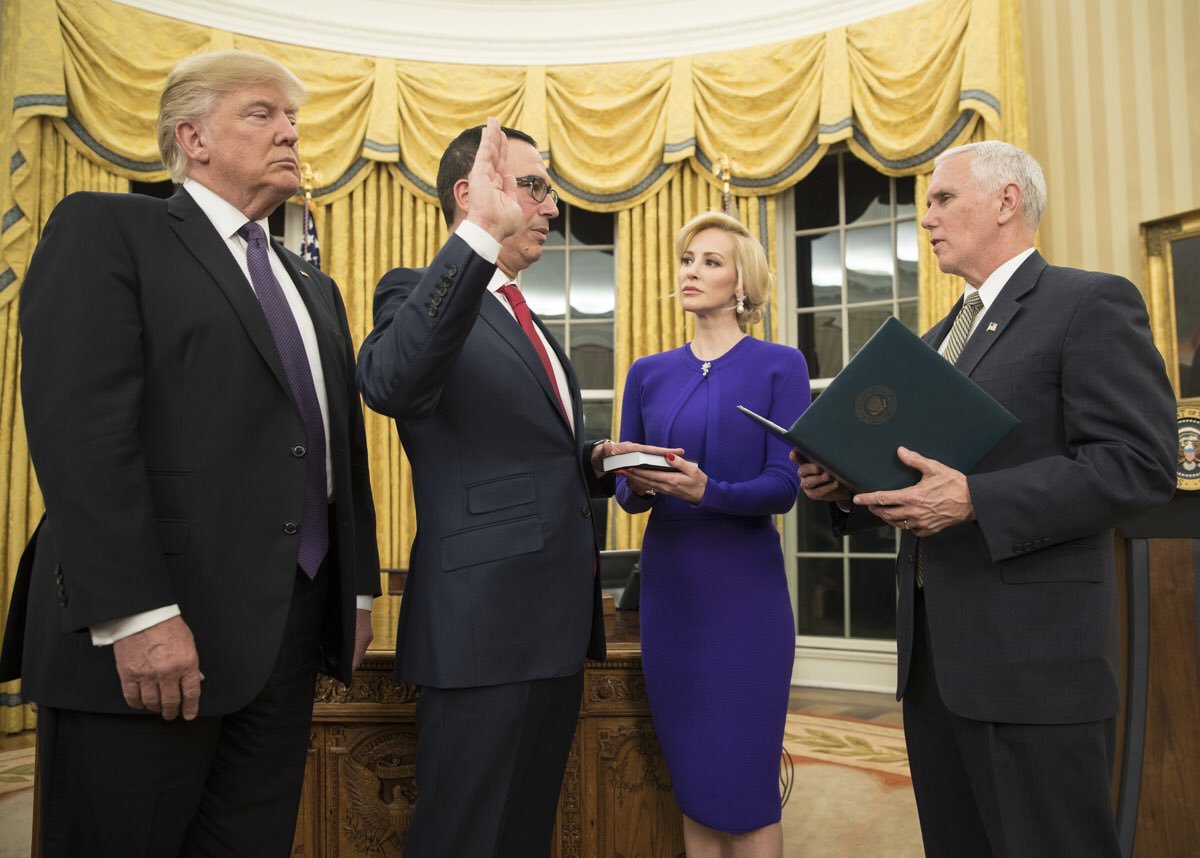The recent announcement by New York Community Bank of a $1 billion-plus injection underscores the trend of private equity firms stepping in to support struggling American lenders.
Spearheaded by $450 million from former Treasury Secretary Steven Mnuchin’s Liberty Strategic Capital, a consortium of private investors is injecting fresh capital into NYCB. This move has assuaged concerns regarding the bank’s financial health, as evidenced by the uptick in its shares following a sharp decline earlier in the day.
This cash infusion follows similar initiatives in the banking sector, such as the acquisition of PacWest by Banc of California last year, which saw significant backing from Warburg Pincus and Centerbridge Partners. Additionally, the merger between FirstSun Capital and HomeStreet in January saw substantial investment from Wellington Management.
Advisors to recent transactions emphasize the importance of speed and discretion. While selling stocks in public markets might seem like a cheaper source of capital, it’s often not feasible for many banks at present. Steven Kelly from the Yale Program on Financial Stability notes, “Public markets are too slow for this kind of capital raise. They’re great if you are doing an IPO and you aren’t in a sensitive environment.”

Moreover, actively raising capital in public markets can expose a bank to intense scrutiny and speculation about its financial position, potentially exerting pressure on its stock. Silicon Valley Bank’s failure to secure funding last year serves as a cautionary tale in this regard.
The trajectory of NYCB’s stock on Wednesday exemplifies this dynamic, with shares plummeting 42% upon news of the capital raise before trading was halted, only to rebound following confirmation of successful funding. An advisor involved in the NYCB transaction remarks, “This is the unfortunate lesson from SVB. With private deals, you can talk for a while, and we almost got to the finish line before there was any publicity.”
Mnuchin’s proactive engagement
It’s reported that Mnuchin directly reached out to NYCB to extend his support amidst media reports detailing the challenges the bank was facing. Mnuchin’s involvement goes beyond his previous role as Treasury secretary; in 2009, he orchestrated the acquisition of California-based bank IndyMac out of receivership, successfully turning it around and eventually selling it to CIT Group in 2015.

With Mnuchin and his fellow investors presumably having assessed NYCB’s deposit levels and capital position and expressing confidence in them, the bank now has a more extended timeframe to address its issues. Recently, NYCB revealed “material weaknesses” in its commercial loan review processes, leading to a delay in filing a crucial annual report.
“This injection of capital buys NYCB significant time. It means they aren’t facing immediate action from regulatory authorities,” remarked Kelly. “Having a billion dollars in capital and the backing of someone who has scrutinized their financials closely is a major vote of confidence.”